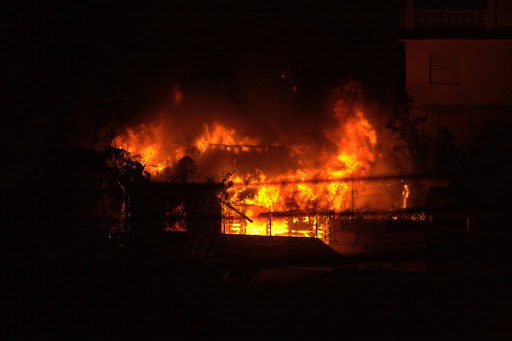
Introduction
Fire damage can be devastating, leaving Arizona homeowners and business owners grappling with emotional, financial, and logistical challenges. Beyond the immediate impact of the fire, navigating the insurance claims process can be a daunting task. Policies often contain complex language, and many people find themselves facing delays, underpayments, or outright denials.
Understanding how to approach your insurance claim is critical to ensuring you receive the compensation you deserve. This guide will outline common challenges, key steps to take, and how legal support can help you handle fire damage insurance claims effectively.
Understanding Arizona Fire Insurance Policies
Coverage Basics
Arizona homeowners’ insurance policies typically include coverage for fire damage. This coverage often extends to:
- Structural Repairs: Costs associated with repairing or rebuilding damaged property
- Personal Property: Reimbursement for furniture, electronics, clothing, and other belongings destroyed in the fire
- Temporary Living Expenses: Costs of alternative housing while repairs are underway, often categorized as additional living expenses (ALE)
While these elements are standard, coverage limits vary. Some policies may include exclusions for wildfires or cap certain types of claims, such as landscaping restoration. It’s essential to review your policy carefully to understand what is covered and any potential limitations.
Common Exclusions
Many policies contain exclusions that may limit or deny coverage. These might include:
- Fires caused by negligence, such as failing to maintain fire safety measures
- Damage to structures not listed in the policy, like detached sheds or older additions
- Limits on coverage for high-value items like jewelry or antiques
Understanding your policy’s terms is crucial to avoid surprises when filing a claim.
Common Challenges in Fire Damage Claims
Delays in Processing
Insurance companies may take weeks or months to process fire damage claims, leaving families and businesses in financial limbo. Delays can occur due to incomplete documentation, policy ambiguities, or high claim volumes during wildfire seasons.
Underpayment of Claims
Insurers may undervalue property damage or dispute the extent of loss, offering settlements that fall short of the actual repair and replacement costs.
Claim Denials
Denials often stem from policy exclusions, disputes over the cause of the fire, or allegations of improper documentation. If you believe your claim has been unfairly denied, it’s important to seek further clarification or pursue an appeal.
Steps to Take After Fire Damage
1. Document Everything
Thorough documentation is critical to the success of your insurance claim. Begin by photographing all damage to your property, including structural damage, destroyed belongings, and the surrounding area. Create an inventory of lost items with as much detail as possible, including estimated values and receipts if available.
2. Notify Your Insurance Company Promptly
Contact your insurance provider as soon as possible to report the fire and initiate your claim. Many policies require prompt notification, and delays in reporting could jeopardize your claim. Be prepared to provide an overview of the damages and any supporting documentation.
3. Keep Detailed Records
Throughout the claims process, maintain records of all correspondence with your insurer, including emails, letters, and phone call summaries. Additionally, keep receipts for temporary housing, repair costs, and other expenses related to the fire. These records will be essential for verifying your claim and justifying compensation requests.
4. Review Settlement Offers Carefully
When your insurer presents a settlement offer, review it thoroughly before accepting. If the offer seems insufficient to cover your losses, don’t hesitate to negotiate or seek legal advice. Insurers may initially undervalue claims, expecting policyholders to accept lower amounts without dispute.
Why Legal Guidance Matters
The Role of an Attorney in Fire Damage Claims
Navigating fire damage claims can be overwhelming, particularly if you encounter challenges like underpayment or denial. An experienced attorney can:
- Evaluate the details of your case and explain your rights under Arizona law
- Negotiate with insurance companies to secure a fair settlement
- Pursue additional compensation if your insurer acted in bad faith
If you feel your claim isn’t being handled properly, consulting with attorneys experienced in navigating Arizona’s fire damage claims can help you achieve the resolution you deserve.
When to Seek Legal Help
You should consider seeking legal assistance if:
- Your claim is denied without adequate explanation
- The insurer delays processing your claim for an unreasonable period
- The settlement offered does not reflect the full extent of your losses
- You suspect bad faith practices, such as misrepresenting policy terms or ignoring valid evidence
An attorney can provide the expertise needed to level the playing field and ensure your rights are protected.
Conclusion
Recovering from fire damage is never easy, but navigating the insurance claims process doesn’t have to add to your burden. By documenting your losses, staying organized, and understanding your policy’s terms, you can strengthen your case and improve your chances of receiving fair compensation.








